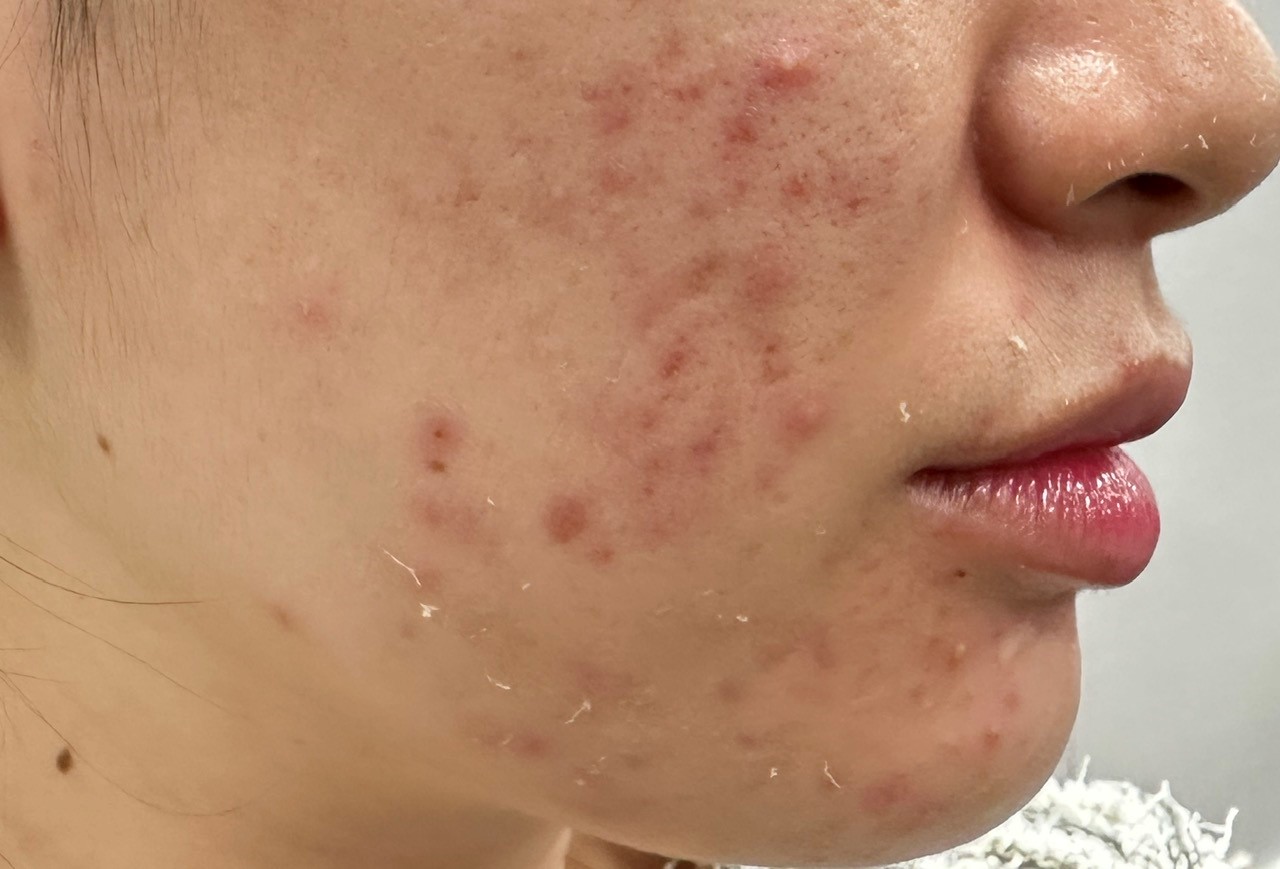Answer:
Hormonal and regular acne differ in their causes and some characteristics. Regular acne is typically caused by clogged pores due to excess oil, dead skin cells, and bacteria. Hormonal acne results from hormonal fluctuations, often appearing during puberty, menstruation, pregnancy, or menopause.
Hormonal acne usually presents as inflammatory, swollen, painful pimples, possibly cysts or pustules, while regular acne can manifest as blackheads, whiteheads, or closed comedones. Confusing the two can lead to ineffective treatment choices.
Stress and fatigue trigger the release of neuropeptides, cytokines, and hormones like cortisol, which stimulate sebaceous glands, cause skin inflammation, damage the skin barrier, and promote hormonal acne. Breakouts during menstruation, puberty, pre- and post-pregnancy, and perimenopause or menopause can indicate hormonal acne. These pimples often appear on the jawline, chin, back, chest, and shoulders as large, swollen cysts, causing discomfort and pain.
 |
Hormonal acne is easily misdiagnosed, leading to improper treatment. Photo: Tam Anh General Hospital |
You should take your daughter for a check-up to determine the cause and type of acne for appropriate treatment. Hormonal acne treatment differs from regular acne treatment, requiring thorough testing and consultation with an endocrinologist for optimal results.
Effective hormonal acne treatment involves medication to balance hormones, dietary changes, a healthy lifestyle, and proper skincare. Several treatment options exist, including birth control pills and antibiotics, but these require a doctor's prescription.
To help prevent and minimize hormonal acne, your daughter should get 8 hours of sleep each night, avoid staying up late, and manage stress. A diet rich in zinc, vitamins C, B, and E promotes healthy skin, as do plenty of fruits and vegetables. She should limit sugary, spicy, fried, fatty foods, and alcoholic beverages.
Dr. Nguyen Thi Thanh Truc
Department of Endocrinology - Diabetology
Tam Anh General Hospital, TP HCM
| Readers can submit questions about endocrine diseases here for doctors to answer. |












